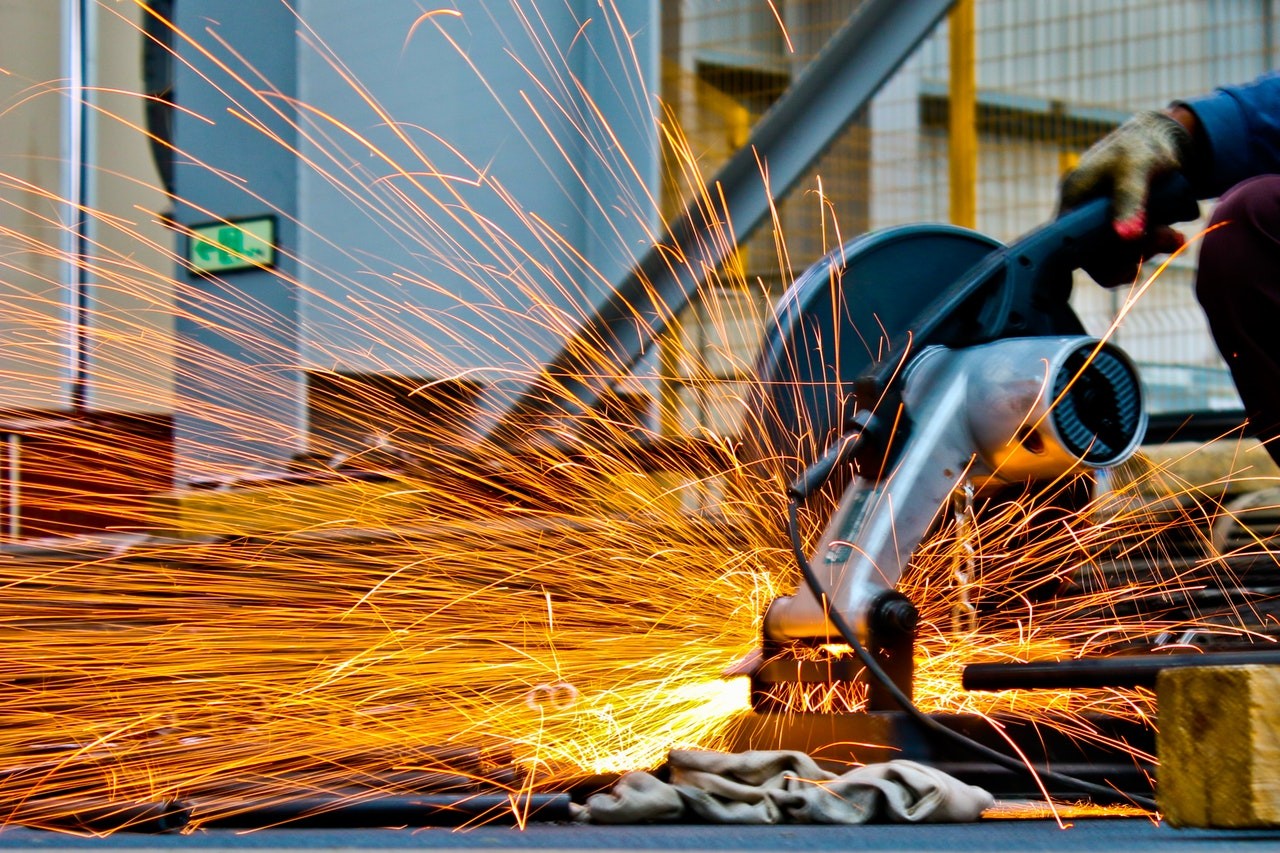According to the National Fire Protection Agency (NFPA), between 2011 and 2015, there were an estimated 37,910 fires at industrial properties each year. These industrial fires resulted in 16 civilian deaths, 273 civilian injuries, and $1.2 billion in property damage.
Industrial fires are serious, but there are several things you can do at your plant or factory to minimize the possibility of an industrial fire. First, it's important to know how they usually start.
The five most common causes of industrial fires are?
1. Combustible Dust Fires
A combustible dust is any dust or fine material that has the potential to catch fire and explode when it is mixed in the air. Many times, materials that are normally considered non-flammable can act as a combustible when fine particles are mixed with air in a particular concentration.
Combustible dust happens in two waves. A primary explosion causes particles to become airborne, and then the dust cloud can ignite and cause a secondary explosion, much more severe than the first. Combustible dust can bring down entire facilities.
How do I Prevent Combustible Dust Fires?
- Implement a hazardous dust inspection, testing, housekeeping, and control program.
- Regularly inspect for dust residues in open and hidden areas.
- Use proper dust collection systems.
- If ignition sources are present, use cleaning methods that do not generate dust clouds.
- Control smoking, open flames, and sparks (mechanical and friction).
2. Hot Work Fires
Hot work is any activity that involves open flames or generates sparks or heat. This includes welding, heat treating, grinding, thawing pipes, torch cutting, brazing, soldering, etc. Hot work becomes a fire hazard when sparks and molten material travel, sometimes as far as 35 feet, igniting combustible dust in other areas.
How do I Prevent Hot Work Fires?
- Train personnel on the hazards associated with hot work and make sure they are using proper safety equipment.
- Clear area of flammable materials including dust, gases, and liquids.
- Make sure a safety professional is on site to provide supervision of the work.
- Avoid hot work if possible.
3. Flammable Liquid and Gas Fires
These are most common in chemical plants. Flammable liquids and gases can ignite off sparks from the previous hazards or add fuel to an already burning fire.
How Do I Prevent A Flammable Gas Fire?
- Know the hazards of each flammable liquid and gas on-site. Read and follow the safety information for storage and follow the material safety data sheet included with the product.
- Properly store hazardous materials according to OSHA.
- Keep ignition sources away from flammable gases and liquids.
- Provide personal protective equipment, like gloves, bodysuits, vests, goggles, shoes etc.
4. Equipment and Machinery Fires
Equipment not properly installed, maintained, or operated correctly is a major cause of industrial fires. This is especially true for equipment associated with hot work and heating. Even machinery not seen as a fire hazard can become a risk with lack of proper maintenance.
How Do I Prevent Equipment and Machinery Fires?
- Training can help employers and employees identify possible risks and what to do if they find one.
- Keep the machines, equipment, and areas surrounding them, clean.
- Prevent machine overheating by following the manufacturer's guidelines for recommended maintenance procedures.
5. Electrical Hazard Fires
Electrical fires are most common in manufacturing plants and include wiring that is exposed or not up to code, overloaded outlets, extension cords, overloaded circuits, static discharge, etc. A spark from electrical hazards can cause ignition of combustible dust and flammable liquids and gases.
How Do I Prevent Electrical Hazard Fires?
- Don't overload electrical equipment or circuits.
- Unplug temporary equipment not in use.
- Avoid using extension cords.
- Use antistatic equipment as advised by OSHA and NFPA.
- Follow a regular cleaning schedule to ensure combustible dust and other hazardous materials are removed from areas that house equipment and machinery.
It can seem overwhelming to have to safeguard your facility against industrial fire hazards, but the pros at Total Fire and Safety can help you identify and prevent risks throughout your facility. They also provide fire safety training to educate employees on proper fire safety equipment operation and life safety procedures.

